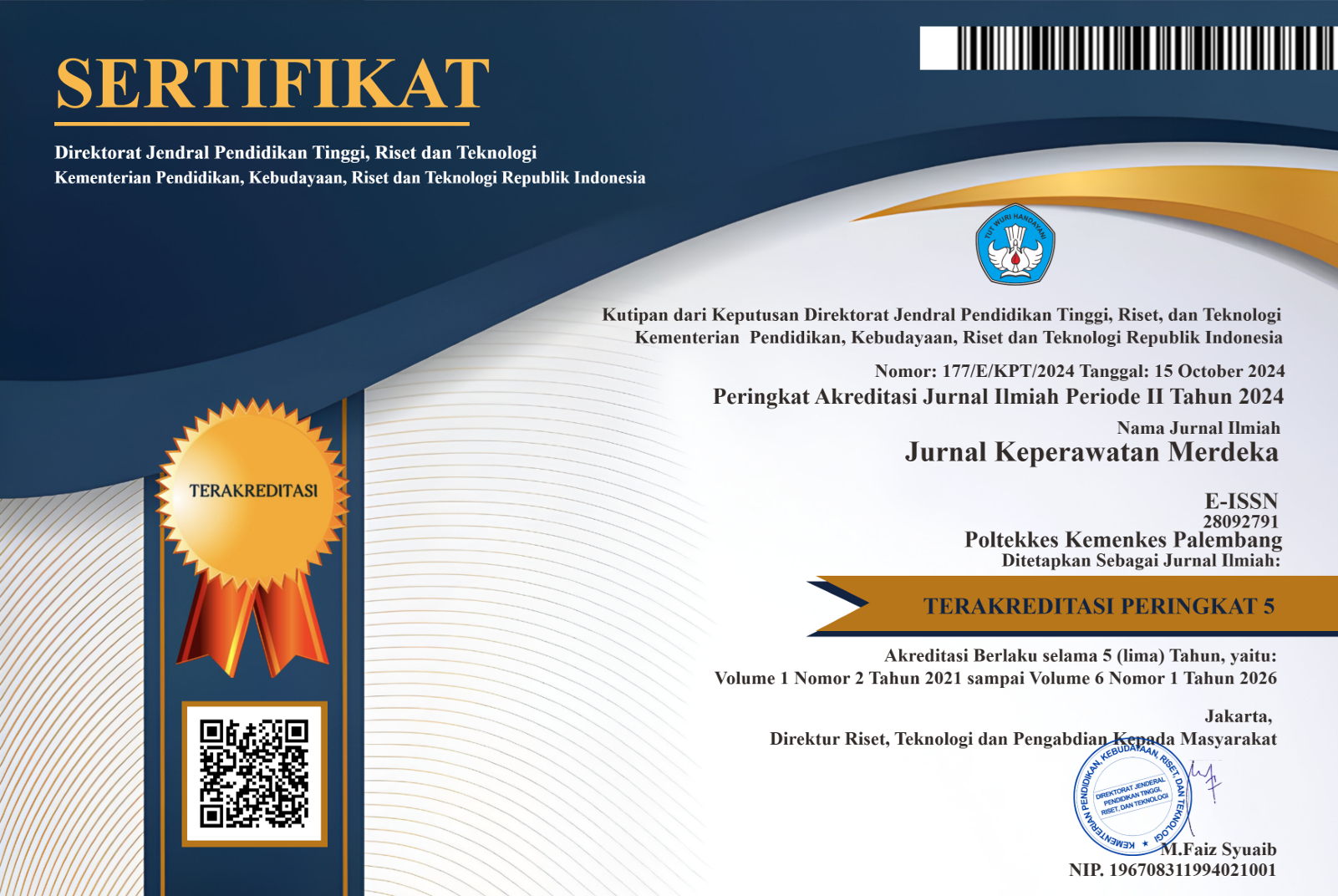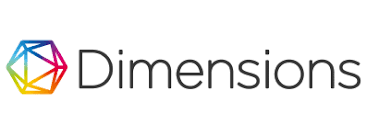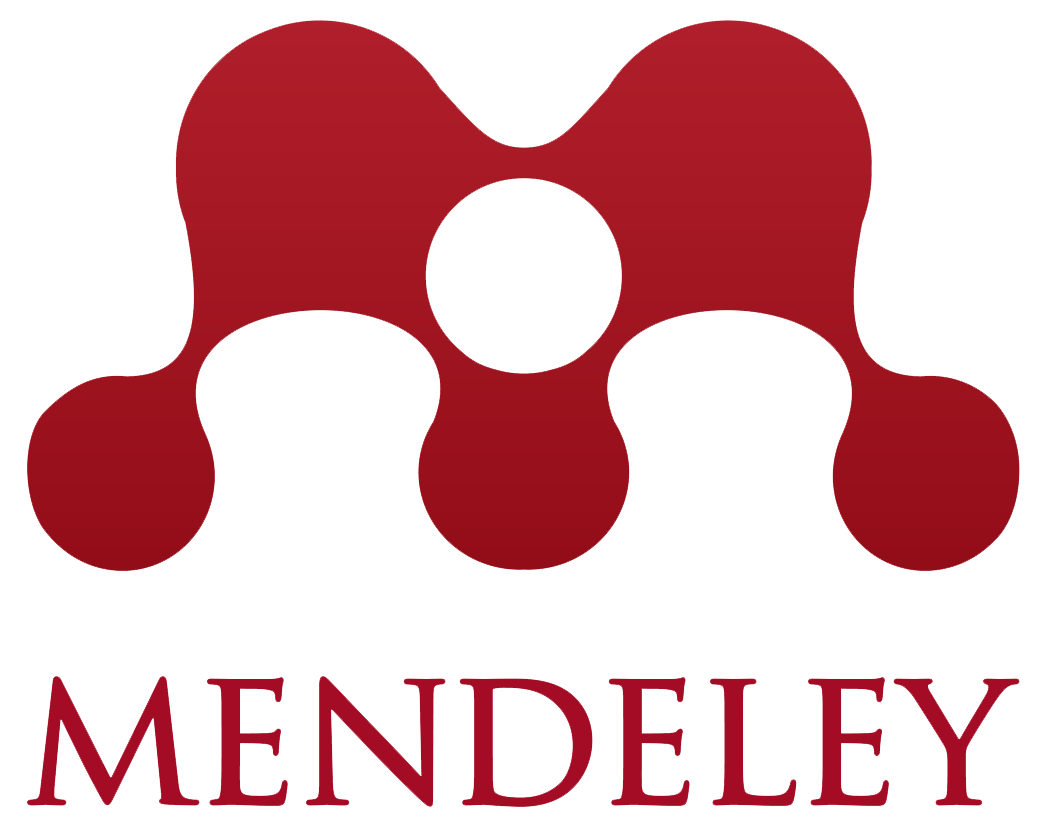Pengaruh Music Therapy Terhadap Penurunan Hiperaktivitas Pada Anak Dengan Gangguan Attention Deficit Hyperactivity Disorder (ADHD): Literature Review
Abstract
Background: Attention Deficit Hyperactivity Disorder (ADHD) It exhibits symptoms of impulsivity, hyperactivity, and inattention, and is a mental disorder. The use of music in therapy can help people with a variety of social, emotional, behavioral, cognitive, and motor problems. When using music for therapeutic purposes, music therapy can specifically change how the brain works by training it to function differently.Objective: to find out if music therapy might help youngsters with ADHD who are too hyperactive to focus on tasks at hand.Methods: In this research, the method used is a literature review, with scholarly journal articles sourced online serving as the primary source material. There are a total of fifteen journal; eleven of them are international journals and four are national ones. Results: This study found that children with ADHD had less hyperactivity after receiving music therapy, according to a review of 15 periodicals. Conclusion: One of the therapeutic options to calm children's hyperactivity is music therapy, Attention Deficit Hyperactivity Disorder (ADHD)
References
Ardianto, T., & Kurniasari, L. (2019). Hubungan tingkat pengetahuan dan status pekerjaan ibu dengan deteksi dini ADHD pada anak usia 5-7 tahun studi di Puskesmas Air Putih Samarinda. Borneo Student Research (BSR), 1(1), 254–261. https://journals.umkt.ac.id/index.php/bsr/article/view/426
Aulia, J., Zulkifli, M., & Rapisa, D. R. (2018). Reducing Hyperactive Behavior Using Instrumental Classic Music on Children With Attention Deficit Hyperactivity Disorder At SLB Plus Madana Dun Ya Banjarmasin. 272, 189–191.
Devi, C. A., & Satya, P. M. (2019). Impact of Music Therapy on Children with Attention Deficit / Hyperactivity Disorder. 8(3), 96–104.
Dursun, P., Fidan, U., & Karayagiz, S. (2021). Probable role of listening therapy in the management of ADHD symptoms : Three case studies. Current Psychollogy.
Erinta, D., & Budiani, S. (2006). Efektivitas penerapan terapi permainan sosialisasi untuk menurunkan perilaku impulsif pada anak dengan. 67–78
Fasano, M. C., Semeraro, C., Cassibba, R., Kringelbach, M. L., Monacis, L., de Palo, V., Vuust, P., & Brattico, E. (2019). Short-term orchestral music training modulates hyperactivity and inhibitory control in school-age children: A longitudinal behavioural study. Frontiers in Psychology, Volume 10, 10(April), 1–11.
Geraldina, A. M. (2017). Terapi Musik : Bebas Budaya atau Terikat Budaya ?25(1), 45–53. https://doi.org/10.22146/buletinpsikologi.27193
Hearta, S. (2017). Pengaruh Terapi Musik Terhadap Perkembangan Kemampuan Anak Dan Remaja Berkebutuhan Khusus. Jurnal Ilmiah Psikologi MANASA, 6, 1–476.
Kasuya-ueba, Y., Zhao, S., & Toichi, M. (2020). The Effect of Music Intervention on Attention in Children : Experimental Evidence. Frontiers in Neuroscience, Volume 14, 14(July), 1–15. https://doi.org/10.3389/fnins.2020.00757
Kh, J., Dahlan, A., Timur, C., & Selatan, J. (2020). Analisis Konten Lagu "Maritirukan" Sebagai Media Pengembangan Keterampilan Sosial Anak Usia DiniPendidikan Guru Madrasah Ibtidaiyah , Universitas Muhammadiyah Jakarta. 15(2), 161–174.
Mahendran, M., & Jagadeesan, T. (2017). Effectiveness of Active and Passive Participation in Music Therapy on Social Emotional Skills of ADHD Children. International Journal of Science and Research (IJSR), 6(9), 1093–1098.
Nunes-Silva M., & Alves, S.O (n.d) (2018). Evalution Of Cognition In Chil-Dren and Adolescents with Attention Deficit/Hyperactivity Disorder.
Nurfitriana, F., Putri, E. R., Sholikhin, G. R., & Widyatno, A. (2019). Penerapan Terapi Musik Dalam Mengatasi Gejala Hiperaktivitas Pada Anak Adhd. Prosiding Seminar Nasional & Call Paper Psikologi Pendidikan 2019 Fakultas Pendidikan Psikologi, Aula C1, 13 April 2019 258, April, 11–14.
Omur, P., & Dolğun, B. (2018). Music Therapy in ADHD and Autism Music Therapy in ADHD and Autism. July. https://doi.org/10.9790/0837-2307099096
Rusmawati, D., Widyorini, E., & Sumijati, V. S. (2012). Pengaruh Terapi Musik dan Gerak Terhadap Penurunan Hiperaktivitas Anak yang Mengalami Attention Deficit Hyperacitvity Disorder (ADHD). Prediksi, Kajian Ilmiah Psikologi -, 1(2), 213–217.
Sholeh, A., & Supena, A. (2021). A Children’s Music Therapy to Enhance the Self-Esteem of Children with Attention Deficit Hyperactivity Disorder (ADHD) in Elementary School.Al Ibtida: Jurnal Pendidikan Guru MI, 8(1), 93. https://doi.org/10.24235/al.ibtida.snj.v8i1.7459
Suyanto, B. N., & Wimbarti, S. (2019). Program Intervensi Musik terhadap Hiperaktivitas Anak Attention Deficit Hyperactivity Disorder (ADHD). Gadjah Mada Journal of Professional Psychology (GamaJPP), 5(1), 15. https://doi.org/10.22146/gamajpp.48584
Piragasam, G. A., Razak, A., Unoon, I., & Piragasam, G. A. (2018). Attention Span Remediation of Attention Deficit Hyperactive Disorders ( ADHD ) Preschoolers with Music as Learning Background Attention Span Remediation of Attention Deficit Hyperactive Disorders ( ADHD ) Preschoolers with Music as Learning Background. 7(4), 148–157. https://doi.org/10.6007/IJARPED/v7-i4/4799
Zhu, C. (2022). Effects of Musicotherapy Combined with Cognitive Ability of Children with Attention Deficit Hyperactivity Disorder Study Participants. 34(2), 288-295
Copyright (c) 2024 JKM : Jurnal Keperawatan Merdeka

This work is licensed under a Creative Commons Attribution-ShareAlike 4.0 International License.
Authors who publish with this journal agree to the following terms:
- Authors retain copyright and grant the journal right of first publication with the work simultaneously licensed under a Creative Commons Attribution License that allows others to share the work with an acknowledgement of the work's authorship and initial publication in this journal.
- Authors are able to enter into separate, additional contractual arrangements for the non-exclusive distribution of the journal's published version of the work (e.g., post it to an institutional repository or publish it in a book), with an acknowledgement of its initial publication in this journal.
- Authors are permitted and encouraged to post their work online (e.g., in institutional repositories or on their website) prior to and during the submission process, as it can lead to productive exchanges, as well as earlier and greater citation of published work













